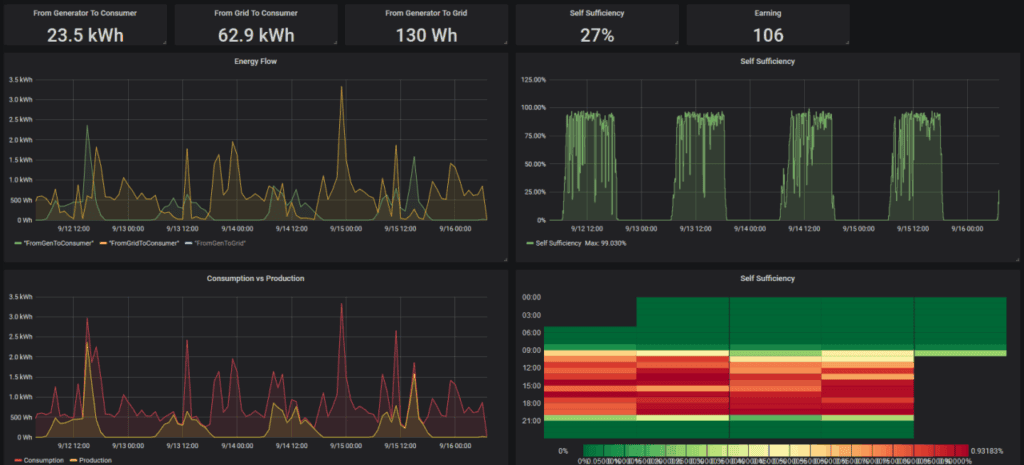As energy efficiency and sustainability become central to modern homeownership, the real estate industry must adapt. One critical evolution is the integration of energy usage metrics into Multiple Listing Service (MLS) listings. Providing potential buyers with detailed energy information empowers smarter decisions, supports eco-conscious living, and aligns with regulatory and market trends.
Overview
This article explores the implications, benefits, and technical considerations of displaying energy usage metrics in MLS listings. From the impact on real estate development to agent training, AI integration, and user experience design, every aspect contributes to a more transparent, efficient, and sustainable real estate ecosystem.
Real Estate Development World
Developers increasingly integrate energy-efficient systems into homes, such as advanced HVAC, insulation, solar panels, and smart meters. By reflecting these features in MLS energy usage metrics, developers can effectively market their green credentials and appeal to sustainability-focused buyers.
Private Real Estate Networks
Private networks must also adapt to display energy data to remain competitive. Whether for luxury eco-homes or niche markets, buyers are prioritizing properties with verified low-energy footprints, and platforms must offer the same level of energy transparency as public MLS platforms.
Remote Real Estate Work
Remote work in real estate has fueled the need for accurate online property data. Including energy usage metrics allows remote buyers to assess not only a property’s design but also its long-term utility costs and sustainability, even from afar.
The MLS Concept
MLS systems were created to facilitate data sharing among agents. Today, this must include energy consumption and efficiency metrics. Fields for annual energy costs, utility breakdowns, and green certifications help ensure listings are complete and informative.
Needed Training Courses
Agents need training in reading, interpreting, and inputting energy metrics. Courses should cover energy reports, utility ratings, and environmental performance indicators to ensure agents can explain these figures to clients confidently.
Needed Certifications
Certifications like NAR’s Green Designation or LEED knowledge training enable agents to specialize in energy-efficient homes. These credentials boost credibility and equip agents to address the rising demand for sustainable housing.
Onboarding Programs for New Agents
Real estate firms should include modules on energy metrics in their onboarding programs. Teaching agents how to locate, understand, and communicate energy data ensures all listings are both accurate and attractive to eco-conscious buyers.
MLS Agent Onboarding Processes
MLS providers should enhance agent onboarding with tutorials specific to entering and interpreting energy usage fields. This proactive approach supports better data entry and consumer education.
MLS Platforms
MLS platforms must evolve to include dedicated sections for energy consumption, solar capacity, insulation ratings, and certification labels. Visual indicators, like Energy Stars or eco-score meters, help users quickly assess a home’s efficiency.
Multiple Listing Services Software Providers
Strong MLS platforms are built on the foundation created by Multiple Listing Services Software Providers. These companies design technology that makes property listing, data sharing, and transaction management seamless for agents.
International providers like CoreLogic Matrix MLS, Black Knight Paragon, FBS Flexmls, Rapattoni, and Bridge Interactive deliver essential tools ranging from IDX integration to advanced analytics and mobile usability.
ArabMLS is introducing similar innovation across the Middle East and North Africa, with region-specific platforms such as Egypt MLS, Dubai MLS, Saudi MLS, Qatar MLS, and Bahrain MLS. This approach tailors global best practices to local markets.
The outcome is improved trust, efficiency, and collaboration across the real estate ecosystem.
Optimizing MLS
Optimization involves intuitive design and thorough data fields. Energy metrics should be filterable, comparable, and displayed with clear units. Integration with third-party energy report systems ensures accuracy.
Artificial Intelligence
AI can automate the analysis of energy metrics, offering predictive models on energy cost savings and environmental impact. This enhances listing value and provides buyers with actionable insights.
Displaying Energy Usage Metrics in MLS Listings
Incorporating energy metrics requires standardized data fields for utility consumption, energy ratings, and renewable installations. Visual charts and scorecards improve user understanding. Consistency and accuracy are key to ensuring trust.

AI Matching Buyers with Ideal Neighborhoods
AI tools use energy usage preferences to recommend neighborhoods with energy-efficient homes, good grid infrastructure, and sustainability-minded communities, aligning buyers with their lifestyle values.
Analytics – Economic Impact
Energy-efficient homes often command higher sale prices and lower days on market. Analytics can track trends in energy efficiency demand and show the ROI of green home investments.
Data Quality Management
To ensure reliable MLS listings, energy data must be validated and standardized. Systems should include checks for outdated metrics, inconsistencies, and missing energy reports.
Intelligent Listing Alerts Based on Market Movement
Buyers can subscribe to alerts for properties under certain energy cost thresholds or with specific certifications, helping them act quickly when relevant listings go live.
Data Security Standards
Sharing utility data demands compliance with privacy laws and cybersecurity protocols. Encryption, consent requirements, and transparent data policies are essential.
Personalization Features
Personalized MLS settings can prioritize eco-friendly homes or display energy usage prominently. This customization enhances the user experience for sustainability-minded buyers.
User Experience Design
Well-designed interfaces present energy metrics clearly, using graphs, comparison tools, and simple explanations. This improves buyer engagement and listing quality.
Usability Testing
Regular testing ensures energy data displays correctly on all devices and that users understand and can interact with the information effectively.
Fix And Flip
Flippers who invest in energy upgrades can highlight these improvements in MLS listings, attracting buyers who value sustainability and reducing time on market.
Property Valuation Tools
Modern valuation tools increasingly factor in energy efficiency. MLS systems that integrate with these tools offer more accurate pricing guidance and market positioning.
MLS Tools for First-Time Homebuyers
Tools that educate buyers on interpreting energy metrics help demystify utility costs. Guides, glossaries, and cost calculators can empower informed decision-making.
Split-Screen MLS Views for Property Comparisons
Split-screen comparisons that include energy metrics enable side-by-side evaluation of operating costs and eco-performance, not just visual and size comparisons.
Cross-Promotion Strategies in MLS
Listings with superior energy performance can be cross-promoted on green home networks, energy efficiency marketplaces, and social media platforms targeting eco-buyers.
Avoiding Legal Trouble When Wholesaling Properties
Accurate representation of energy metrics is crucial in wholesaling. Misleading or missing energy data can lead to compliance issues or buyer disputes.
MLS Leads – Integrating Digital Marketing
Digital campaigns targeting energy-conscious consumers can leverage MLS data. Segmenting leads based on green preferences enables higher conversion rates.
Machine Learning Models
Machine learning can analyze energy usage data to predict home efficiency trends and suggest optimal pricing or renovation strategies to maximize value.
Renewable Energy Integration
Solar panels, battery systems, and EV chargers should be listed with energy savings estimates. MLS fields need to accommodate detailed specs and certifications.
Process Improvement
Streamlining the process of importing utility data from providers and audits into MLS fields improves efficiency and reduces errors.
Innovation Hubs
Real estate innovation labs can pilot new features like live energy dashboards in MLS or partnerships with utility companies for automated data feeds.
Review and Reputation Systems
Adding homeowner or tenant reviews regarding energy efficiency can enhance listing trustworthiness. Verified performance feedback supports informed buying decisions.
Venture Capital Investments
VC funding is driving platforms that specialize in green real estate. These innovations often push the boundaries of how energy data is used and displayed in MLS systems.
Business Model Innovation
Brokerages offering services around energy audits, upgrades, and financing are emerging. MLS listings with detailed energy data support these expanded business models.
Market Trend Predictive Modeling
Data on energy usage helps forecast demand for green homes, inform urban planning, and guide developers in building energy-efficient communities.
Operational Efficiency Solutions
Integrated energy data tools reduce manual entry, improve MLS platform responsiveness, and enhance agent productivity.
Professional Development
Ongoing training in sustainability, energy standards, and green marketing ensures professionals stay ahead of market expectations.
Frequently Asked Questions
What energy metrics should be included in MLS listings?
Common metrics include average monthly utility costs, Energy Star ratings, solar capacity, insulation R-values, and green certifications.
How can agents ensure the accuracy of energy data?
Agents should request recent utility bills, energy audits, and third-party certifications. Cross-checking data and client education are also important.
Do energy-efficient homes sell faster?
Yes. Studies show homes with green features and transparent energy data often sell quicker and at higher prices due to perceived long-term savings.
Displaying energy usage metrics in MLS listings represents a significant step toward modernizing real estate and promoting sustainability. From improved buyer trust to enhanced property valuation, the benefits are clear. As platforms evolve and agents become more skilled in energy literacy, MLS systems will become powerful tools for eco-conscious homebuying. Real estate professionals, developers, and tech innovators must collaborate to ensure these metrics are not only available but also used to their fullest potential in shaping a more energy-efficient future.













